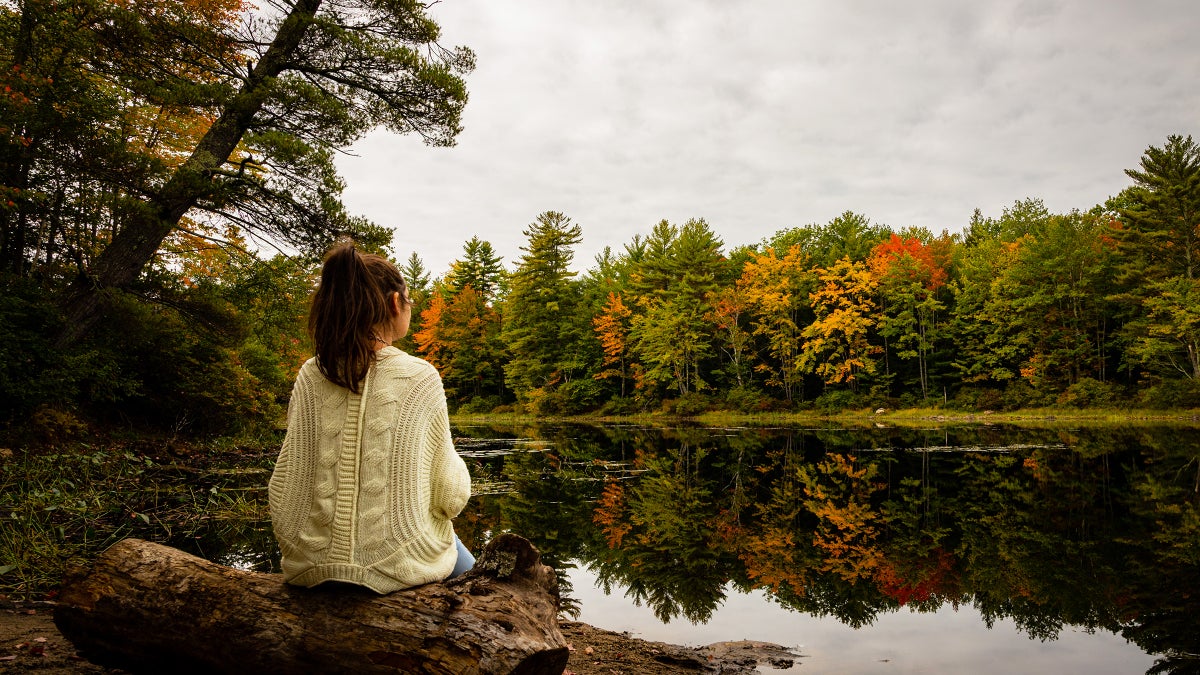No products in the cart.
Outdoor Adventure
New England’s Nature Is Part of My Identity. How Do I Move Away?
Welcome to Tough Love. We’re answering your questions about dating, breakups, and everything in between. Our advice giver is Blair Braverman, dogsled racer and author of Welcome to the Goddamn Ice Cube. Have a question of your own? Write to us at toughlove@outsideinc.com.
I am moving to pursue my dream job in another part of the world. Exciting, right? I’m thrilled about it. But there is one thing I feel apprehensive about. I’ve always lived in New England, and I am very connected to the nature here. When I’m not working or sleeping, I am usually adventuring outside year-round. Now I’m going somewhere that has a completely different kind of environment, and I am afraid that it will feel like I’m leaving nature behind, because it’s not “my” nature. How do I connect to a new environment when I’ve never had to do that before? I feel like the woods are my friend, and without them I will feel like I am losing myself a bit.
Congrats on your dream job! I think you’ll find that if you’ve connected to nature in one place, you’ll connect well somewhere else, too. There will be differences between the landscapes, of course, and perhaps huge ones. But the skills you’ve developed in the woods of New England—and your keen senses of observation and wonder—will apply just about anywhere you find yourself.
In fact, you may find yourself discovering parallels that you never anticipated. For instance, I’m most comfortable in the frozen north—but when I traveled to the Namibian desert, I was shocked to find that in some ways, the landscape seemed familiar. Not the temperature, or the plant and animal species, but the scale of it: the fact that I was tiny in the face of a vast, open terrain. And as weeks passed, I noticed other similarities, including the simple but striking fact that both landscapes were defined in part by adaptation to a single scarce resource. In the northern winter, that resource was warmth; in the desert, it was water. Every creature, myself included, found ways to preserve and treasure that one precious thing. And when I left to head north again, I brought with me a deeper understanding of the frozen landscape I thought I knew.
It’s helpful to remember that nature is interconnected, and the same patterns emerge in ecosystems around the world. But here are some practical tips, too, as you find your footing:
1. Make Sure You Have Appropriate Clothing and Gear
You don’t want to head into the desert without plenty of water, or into the Alaskan wilds without protection from bears. If you’re not sure, go to the local gear shop and ask for recommendations, or pay attention to the people around you who seem to know what they’re doing. Do they wear long, light-colored sleeves to block the sun? A certain kind of boots or parka? Snake gaiters? Serious rain gear? Whatever the locals are wearing, odds are that you’ll be happier and more comfortable if you wear it, too.
2. The More You Learn About a Landscape, The Better You’ll Connect With It
You can learn on your own, simply by spending time outside and observing the nature around you, or you can sign up for an ecology class or a guided trip. Deep knowledge is a kind of love, and the more you know about the plants, animals, weather, and geography of your new environment, the more you’ll feel at home.
3. Allow Your Body and Mind to Settle Into Your New Environment
You should take time to adjust before trying anything too intense, especially if you’re planning to head out solo. So even if you’re comfortable with six-hour cross-country ski trips in New Hampshire, you should start with much shorter jaunts in, say, Hawaii or Arizona. This isn’t just about your fitness and knowledge; it’s also physiological. It can take a while to acclimate to different temperatures, altitudes, and humidity levels, and you don’t yet know how your body will respond.
4. Give Yourself Permission to Change
Try to stay open to new adventures, even things you never imagined yourself liking. Surfing? Fishing? Snowmobiling? If you’re even a little bit curious about a local activity, now is a great time to give it a try. Know that adapting to a new landscape—even coming to love it—doesn’t mean that you’re abandoning your beloved woods; it means that you’re holding both places in your heart.
5. Find a Way to Bring a Piece of Nature From Home With You
Grow a familiar plant in a pot, or decorate with dried flowers. Frame a photo or map of your favorite trails. Buy art from a regional artist to hang on the walls—or, if you feel inspired, make that art yourself.
You have a lot of adjustments ahead of you. You’re moving across the world, and adapting to a new job, culture, community, and possibly even language. But I think you’ll find that nature itself will be a balm to your adjustment, not an added difficulty. When things get overwhelming, you’ll be able to step outside into the natural world, where human challenges shrink away, and embrace a different kind of the same beauty that you love in New England. You may be saying goodbye, temporarily, to a beloved friend—but I trust that you’ll make a great new friend, too.
Source link

